Literary Tourism: Travel By the Book
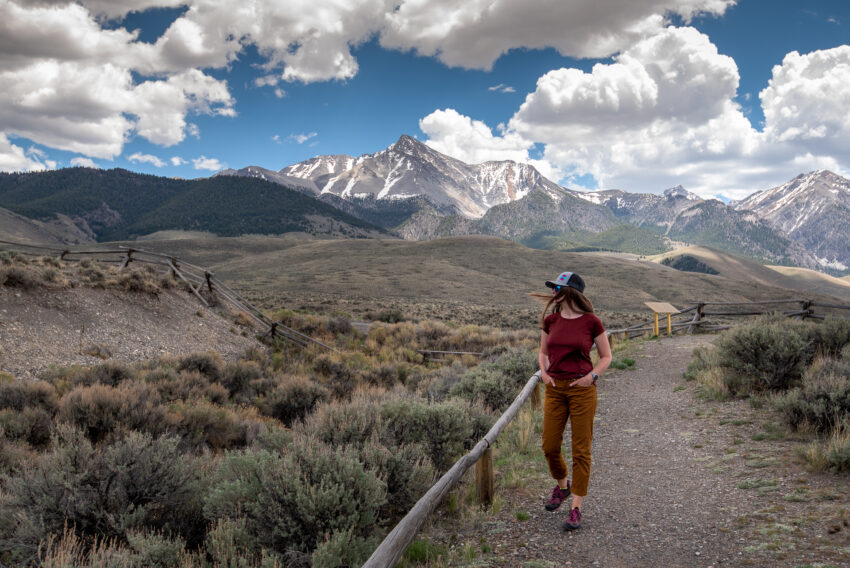

Here Are 8 Places Around the World Inspired by Authors: Literary Tourism
By Myna German
“Literary tourism?” you say. “I’ve never heard of such a term.” Watch closely, because here’s where we pivot from personal anecdotes to microtrend.
Some of us travel for pleasure alone, like enjoying a beach on a sunny July afternoon. Some of us travel to learn new things, to discover new ideas. In literary tourism, we travel to enjoy a connection with our favorite authors. We travel to walk the streets where they lived and laughed and loved and cried. We travel to commune with our favorite characters.
Pico Iyer, British-born to Indian parents, who domiciled a long-time in California and wrote many books on multinational identity and cosmopolitanism, discusses the many uses of travel. In changing scenery and place, mingling with many strangers and cultures, we come to see the world differently and hopefully more expansively.
What is Literary Tourism?
Literary tourism is a type of cultural tourism that deals with places and events from fictional texts as well as the lives of their authors. This could include following the route taken by a fictional character, visiting a particular place associated with a novel or a novelist, such as their home, or visiting a poet’s grave. Some scholars regard literary tourism as a contemporary type of secular pilgrimage.
Tourism offers an escape from everyday woes, bustling careers and a “time out” to reconnect with loved ones in a novel way (Iyer, 1992). Some people flock to beaches and lakes for outdoor recreation, some people embark on an odyssey of the mind by taking courses or seeking literary sights. Cultural commissions in various countries designate sites and staff museums dedicated to famous authors.
Cities can brand themselves as destinations and find an identity in promoting pilgrimage to literary shrines within their borders. Writers have referred lovingly to their place of domicile or home in their books.
Here are some places you might visit for literary tourism purposes:
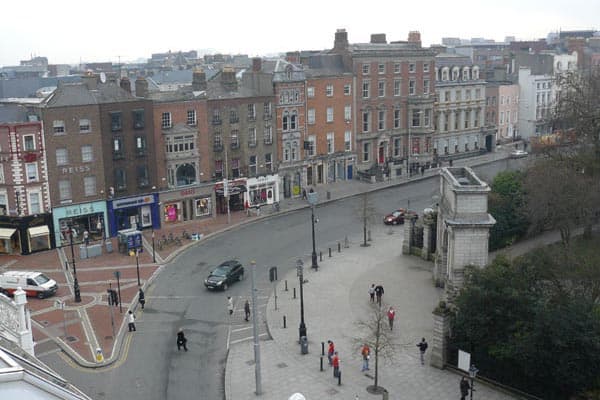
One such site in Dublin, Ireland where you can find James Joyce’s Historical Museum and Bloomsday tour. In his famous work, Ulysses (1923) , Joyce details a 24-hour day in the life of hero, Leopold Bloom.
He awakens and carries out his ordinary business, visits pubs, and observes his wife mingling with her lover in a pub prior to going upstairs for an assignation. That pub is visitable on a mile-long foot tour of the neighborhood in Dublin. Artifacts with an informative film are visitable in an old house converted to a museum.

San Francisco
Poet Allen Ginsberg founded the “City Lights” bookstore in San Francisco , adopted it as a hometown after New York, and his store has attracted many visitors to North Beach. The bookstore has readings of his work periodically and carries all his books.
Ginsberg (1926–1997) was born in Newark, New Jersey, and was one of the leading voices of the Beat Generation, a literary movement that effectively began in San Francisco on the evening of October 7, 1955, when Ginsberg gave his first public performance of his poems, including the famous “Howl.”
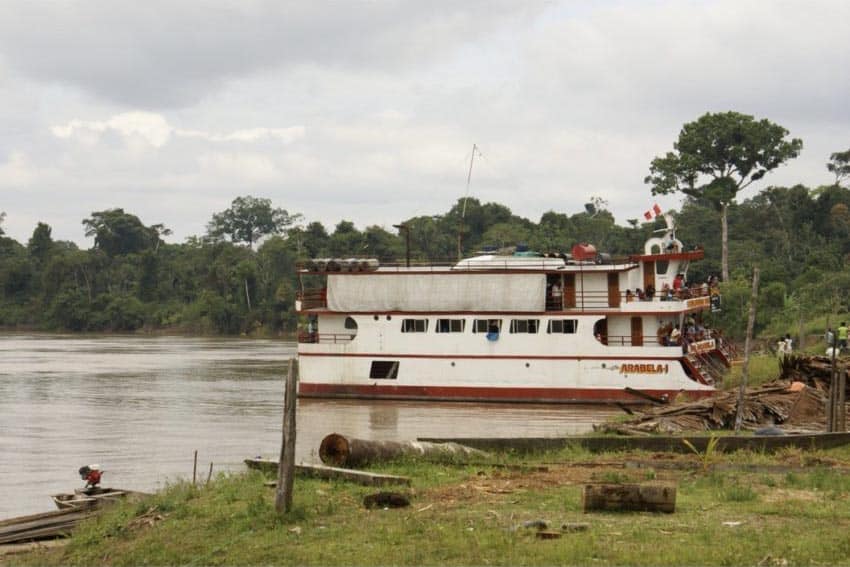
Oxford is home to James Faulkner, the American novelist who epitomizes southern writing.
Every year, about 25,000 literary pilgrims come from around the world to visit Oxford , the heart of writer William Faulkner’s world. The fictional setting for most of his stories, Yoknapatawpha County is “one of the most convincing ever conceived by a writer,” wrote the late Willie Morris in a 1989 National Geographic cover story. “A microcosm not only of the South but also of the human race,” Willie observed.
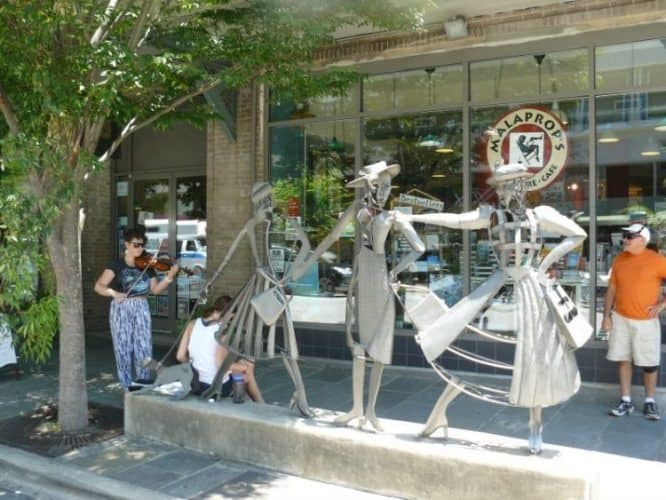
Asheville, NC
Thomas Wolfe writes affectionately of Asheville in “You Can’t Go Home Again” (published posthumously after his early death in 1938 at age 38) and he shows a tremendous sense of place and time in his books.
Wolfe lived in New York in later years, as well as sojourns in Europe, but many of his books discuss the long train ride from New York to Asheville to see his mother, who ran “The Old Kentucky Home” boardinghouse, which is a state-supported museum—a must-see on a visit.
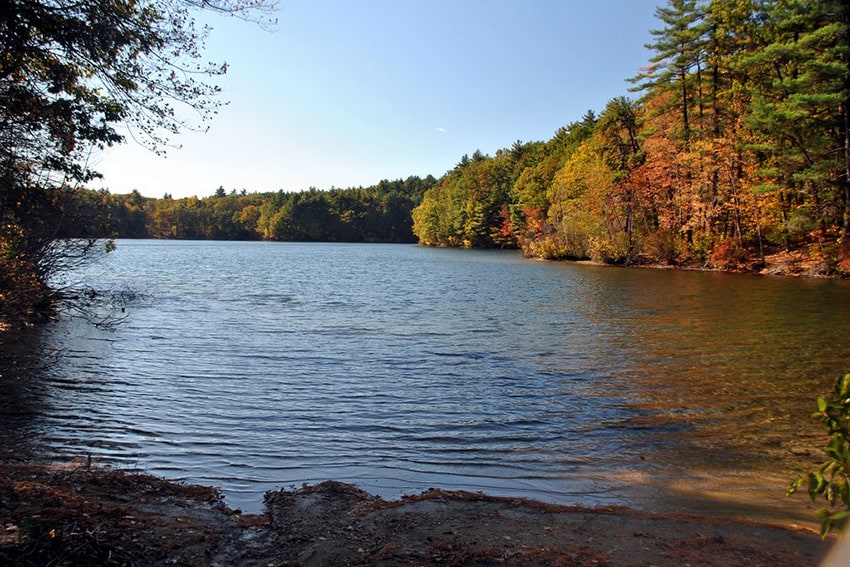
Walden Pond and Concord, MA
The transcendental poets and authors made this place home in the 1830s and 40s, about 25 miles outside Boston.
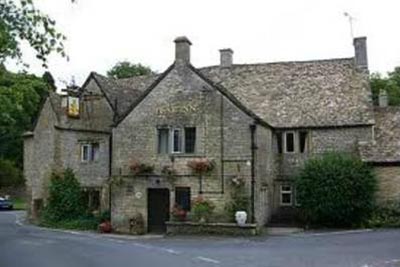
Henry David Thoreau retreated to the woods here to write Walden and it’s still possible to hike and swim in the very lake he wrote about.
He lived in a cabin for two years, resisting the influences of society to write the eponymous book.
The Cotswalds, UK
It is no wonder that tourists flock to see the sites mentioned in a novel, albeit the author’s hometown or fictitious site.
In Jane Eyre, Charlotte Bronte makes the moors of northern England come alive and people that love the book flock here to see it.
Her sister, Emily Bronte, wrote Wuthering Height s in this lonely, isolated location in the 1800s.

Prince Edward Island, Canada
Lucy Maud Montgomery (L.M. Montgomery) wrote Anne of the Green Gables , a coming-of-age novel about an orphan, her adopted parents and her fantasy world in this whimsical place.
Tourists flock across the ferry from the mainland to see the fabled cottage and island streets where her characters lived and loved and cried. Many four-hour organized tours depart from Charlottetown.
Key West, FL
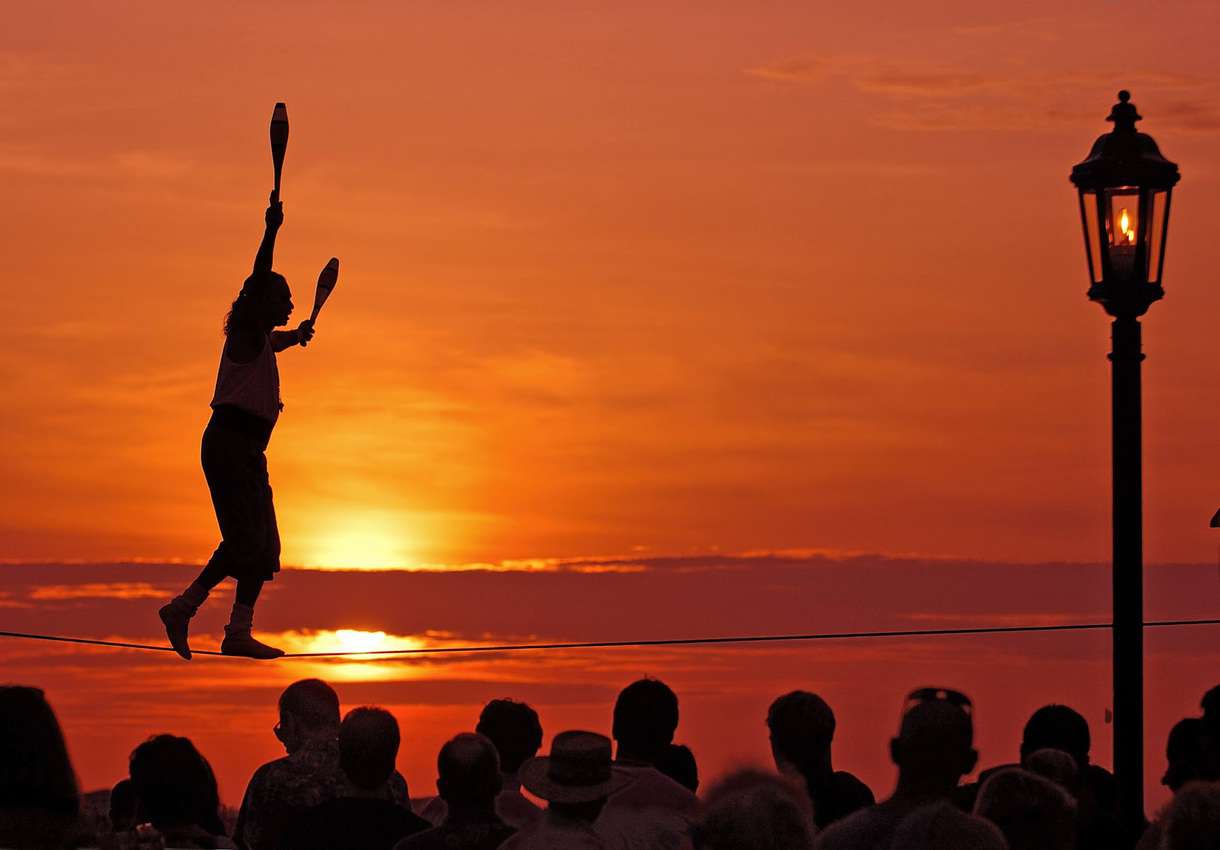
Author Ernest Hemingway divided his time between here and Cuba, writing his most famous novels such as The Sun Also Rise s and Old Man and the Sea, picking up on the nautical themes that are almost in the air.
Culture is a collective asset. Creates joint values of set people. Travel almost the reverse, blending of people and cultures through movement
Literary places can be defined in various ways, but principally they acquire meaning from links with writers and the settings of their novels. Such places attract tourists and form part of the landscape of heritage tourism.
Literary tourism as subset of cultural or heritage tourism
In-place culture is a collective asset of a community. It creates joint values for a set of people. Travel is almost the reverse, blending people and cultures through movement and relying on transportation technology.
This writer has visited all of the suggested destinations. Your choice will vary based on what you read and the authors you are interested in, but definitely start out on these journeys. The more I do, the more I want to do. It has motivated me to start new novels by my favorite writers and also induced me to read writers that I never thought of.
It can be combined with nice hotels, scenic vistas, and all the regular trappings of tourism – motivated by escape and comfort — but it is deeply educational and can involve entire families.
Literary tourism offers opportunities and challenges for the serious traveler. It is not for everyone. Many people go to a city and discover there are literary sites to see, along with historic or other cultural. This article is written to suggest that you start with the literary and you will find other pleasures and side excursions along the way.
I find being a literary tourist quite a wonderful idea!

Myna German is a Professor of Literature and Communications at Delaware State University, Dover DE

- Latest Posts
- Woman Traveling Solo on Turkish Buses - March 27, 2024
- Florence: A Self Guided Walking Tour - March 20, 2024
- Useful Products for a New Year - March 20, 2024
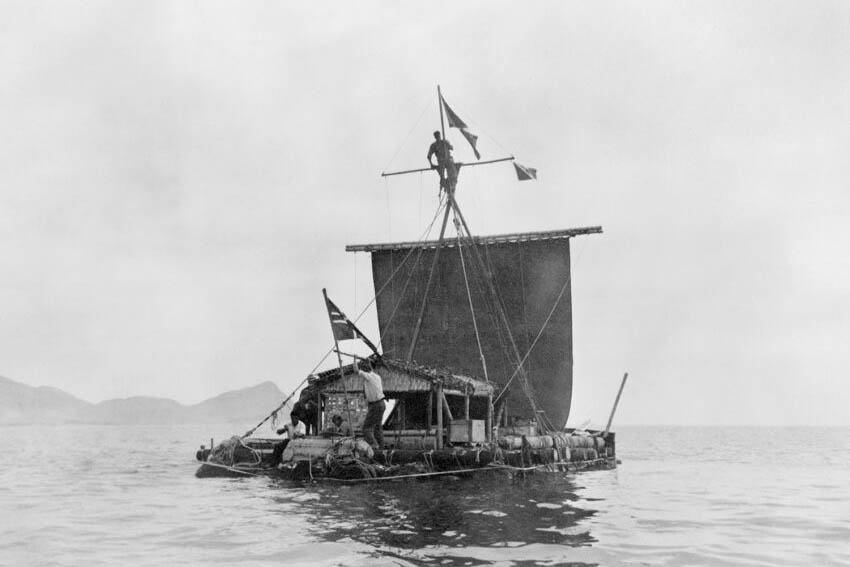
Leave a Reply Cancel reply
Your email address will not be published. Required fields are marked *
Insert/edit link
Enter the destination URL
Or link to existing content

- Everything to Know about What is Literary Tourism
- Blue Rose Recommends
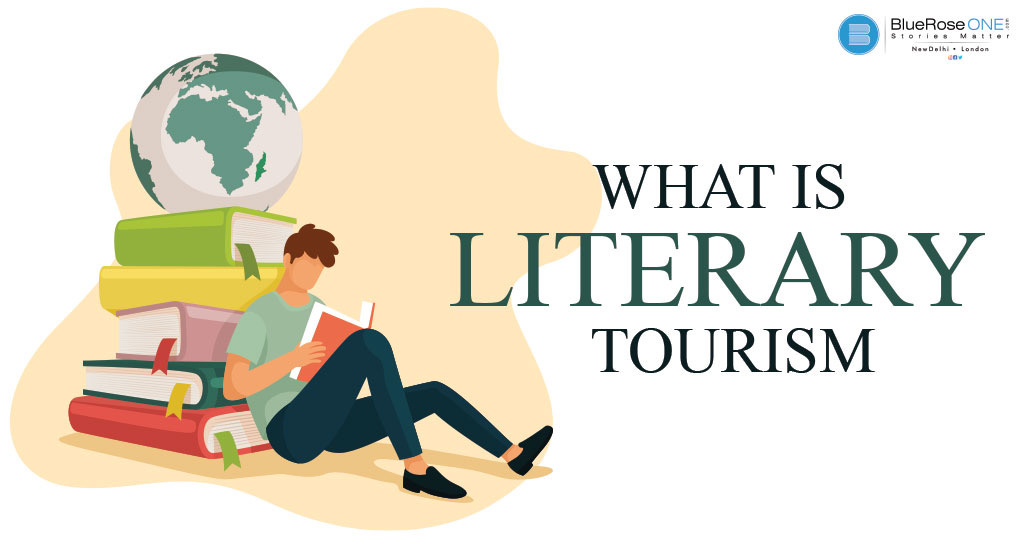
Literary tourism, a niche within the broader spectrum of travel, offers a unique and enriching experience for book lovers and literary enthusiasts. It involves visiting places associated with literature, whether they are the settings of beloved novels, the homes of renowned authors, or the locations that inspired literary masterpieces.
Read: Everything to Know about Pragati Maidan New Delhi World Book Fair 2024, New Delhi.
As we delve into the world of literary tourism, we discover how the realms of fiction and reality intertwine, creating a captivating tapestry that beckons readers to step into the landscapes of their favourite books.
Here’s a list of 7 pointers to keep in mind for literary tourism:
Literary Landscapes: Exploring Fictional Worlds
- Author’s Abode: Literary Pilgrimages to Author’s Homes
Literary Festivals: Celebrating the Written Word
Bookish cities: urban centres of literary excellence, preserving literary heritage: libraries and archives, challenges and controversies in literary tourism, the future of literary tourism: nurturing a love for reading.
One of the most enchanting aspects of literary tourism is the opportunity to traverse the landscapes that exist within the pages of beloved novels. From the rolling hills of J.R.R. Tolkien’s Middle-earth to the bustling London streets of Arthur Conan Doyle’s Sherlock Holmes mysteries, literary tourism allows readers to immerse themselves in the fictional worlds that have captured their imaginations.
Take, for instance, the magical realm of Harry Potter. The Wizarding World, created by J.K. Rowling, has become a pilgrimage site for fans worldwide. The bustling Diagon Alley and the iconic Hogwarts School of Witchcraft and Wizardry, though products of Rowling’s imagination, have found tangible form in places like the Warner Bros. Studio Tour in London and the Wizarding World of Harry Potter theme parks.
Author's Abode: Literary Pilgrimages to Author's Homes
Literary tourism extends beyond the realms of fiction to the very homes and haunts of revered authors. Visiting the residences of literary giants provides a unique glimpse into the environments that shaped their creative processes. The Brontë Parsonage Museum in Haworth, England, allows visitors to explore the home where the Brontë sisters penned their timeless classics such as “Wuthering Heights” and “Jane Eyre.”
Similarly, the Mark Twain House and Museum in Hartford, Connecticut, offers a fascinating insight into the life of Samuel Clemens, better known as Mark Twain. The rooms where Twain crafted his iconic works are preserved, giving visitors an intimate connection to the author and his creative journey.
Literary tourism is not confined to physical locations; it also encompasses the vibrant realm of literary festivals. These events serve as bustling hubs where authors, readers, and literary enthusiasts converge to celebrate the written word. Festivals like the Hay Festival in Wales and the Jaipur Literature Festival in India have gained international acclaim for their ability to foster a shared appreciation for literature.
Literary festivals provide a platform for authors to engage with their audience, offering book signings, panel discussions, and readings. Attendees, in turn, have the chance to interact with their favourite writers, gaining deeper insights into the creative process and the inspiration behind their works.
Certain cities around the world stand as veritable meccas for bibliophiles, boasting rich literary histories and vibrant book cultures. Paris, often referred to as the “City of Light,” was home to expatriate writers like Ernest Hemingway and F. Scott Fitzgerald during the 1920s. Exploring the streets of Montmartre or sitting in cafes that once hosted these literary luminaries provides a tangible link to the past.
In Dublin, the literary legacy is woven into the fabric of the city itself. The Dublin Writers Museum and walking tours dedicated to James Joyce’s “Ulysses” allow visitors to trace the footsteps of the city’s literary greats. Meanwhile, Edinburgh, with its mediaeval charm, is the birthplace of J.K. Rowling’s Harry Potter series, and the cityscape is dotted with locations that inspired the magical universe.
You may also like: 7 Top Rated Self-Help Books of all time in 2024
Libraries and archives play a crucial role in preserving literary heritage, and they, too, become destinations for literary travelers. The British Library in London houses an extensive collection of manuscripts, rare books, and literary treasures. From the original manuscript of Lewis Carroll’s “Alice’s Adventures in Wonderland” to handwritten lyrics by The Beatles, the British Library offers a tangible connection to a diverse array of literary and cultural phenomena.
Similarly, the Library of Congress in Washington, D.C., stands as a beacon of knowledge. Its impressive collection includes the personal library of Thomas Jefferson, reflecting not only the literary tastes of a founding father but also the intellectual currents that shaped the early United States.
While literary tourism offers a myriad of enriching experiences, it is not without its challenges and controversies. The delicate balance between preserving the authenticity of literary sites and meeting the demands of tourism can pose a threat to the very essence that draws people to these places. Issues such as overcrowding, commercialization, and the potential degradation of historic sites require careful consideration to ensure the longevity of literary tourism as a meaningful venture.
Moreover, the interpretation of certain literary works or the lives of authors may be contentious. Sites associated with authors who hold controversial views or whose works have been reevaluated in modern contexts can spark debates about the ethics of literary tourism. Striking a balance between acknowledging the historical context and fostering a space for critical reflection is essential to navigating these complex issues.
As we gaze into the future of literary tourism, there is immense potential to harness its power in fostering a love for reading. Initiatives that promote literacy, education, and cultural exchange can be seamlessly integrated into literary tourism experiences. For instance, partnerships between schools and literary sites can provide students with unique learning opportunities, connecting classroom studies with real-world experiences.
Additionally, the digital realm opens new avenues for literary tourism. Virtual reality experiences, online book clubs, and interactive platforms can extend the reach of literary tourism to a global audience. Whether someone is halfway across the world or just a few miles away, the magic of literary exploration can be shared and celebrated through digital mediums.
Read: Amazon Ads for Authors: How Authors Can Promote Their Books Through Amazon Ads
In conclusion, literary tourism transcends the boundaries of traditional travel, inviting individuals to embark on journeys that intertwine fiction and reality. From the fictional landscapes of beloved novels to the homes of literary greats, from bustling literary festivals to bookish cities, each facet of literary tourism contributes to a rich tapestry that celebrates the written word.
While challenges and controversies may arise, the enduring appeal of literary tourism lies in its ability to kindle a passion for reading, foster cultural understanding, and provide a bridge between the past and the present. As we navigate the landscapes of literature, we discover that the magic of storytelling extends far beyond the pages of a book—it lingers in the places, the people, and the shared experiences that make literary tourism a truly enchanting endeavor. So, whether you’re tracing the footsteps of your favourite characters or standing in the study where a classic was penned, literary tourism invites you to unveil the magic of literary exploration.
You may also like: Publish your book with Amazon Self-Publishing in 2024
- About The Author
- Latest Posts
Manan Sahni

You May Also Like
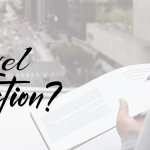
Leave a Reply Cancel reply
Your email address will not be published. Required fields are marked *
Save my name, email, and website in this browser for the next time I comment.
At WiseTour, we're committed to delivering accurate, trustworthy information. Our expert-authored content is rigorously fact-checked and sourced from credible authorities. Discover how we uphold the highest standards in providing you with reliable knowledge.
Learn more...
What Is Literary Tourism?
Literary tourism is the practice of visiting cities and sites related to works of fiction and their authors. Combining literature with travel and cultural experiences, literary tourism is by no means a recent occurrence and has been practiced for several centuries. The use of electronic devices for participating in the literary tourism experience has become popular and has added some new twists to this form of tourism.
An interest in traveling to places associated with poets and novelists grew in the 19th century, when according to historical accounts, curious travelers began visiting the homes, graves and favorite haunts of famous writers. Travelers also visited the sites and cities described in famous poems and novels. During this time, Stratford, England was memorialized for Shakespeare , while Abbotsford, England, was venerated for Sir Walter Scott. The Bronte sisters were remembered for their home at Haworth, England.
Crossing the boundaries between literature and cultural studies, literary tourism invites readers to make fictional experiences come alive. Literary tourism enables travelers to immerse themselves in the local culture, while increasing their knowledge about authors and literature. To cater to the tastes of this specialized group of travelers, many cities have taken advantage of this phenomenon by creating walking and cycling tours of famous writers' homes, the places where they wrote, and taverns they may have visited.
For example, London , England, has tours that honor Arthur Conan Doyle's Sherlock Homes . One tour includes a house dedicated to fictional characters from the novel. In Ireland, a Dublin Literary Pub Crawl invites tourists to walk in the shoes of writers like James Joyce, Oscar Wilde, George Bernard Shaw and W.B. Yeats. The walking tour is guided by actors, and guests are invited to participate in a literary quiz with prizes.
The development of electronic devices for reading books has sparked new innovations in literary tourism, with authors writing novels that offer readers the option of a virtual travel experience or a new way to enjoy a travel destination. Travel guides in some of these novels allow the reader to visit sites remotely or gather information for a vacation. Some electronic literary tourism novels encourage the readers to visit a city by involving them in a game in which points are given for visiting different locations. An example is a novel by the Japanese author Higashi Moriyama, who has partnered with the city of Kyota, Japan, to draw tourists to the city.
AS FEATURED ON:

Related Articles
- What Is Electronic Literature?
- What Is the Connection between Literature and History?
- What are Electronic Publications?
- How can I Become a Better Reader of Shakespeare?
- Who is Oscar Wilde?
Discussion Comments
Post your comments.
- By: Dmitriy Lesnyak London, England, provides tours that focus on Sherlock Holmes.
- By: bepsphoto A Dublin, Ireland, literary tour frequents areas where writers like James Joyce walked.
- By: Nando Machado Tourists might visit the haunts of Irish writer Oscar Wilde during a pub crawl in Dublin.
- By: ele Bookstores often have sections dedicated to local historical sites.
- By: Maridav Literary tourism can help visitors immerse themselves in the local culture of a travel destination.
- Craft and Criticism
- Fiction and Poetry
- News and Culture
- Lit Hub Radio
- Reading Lists

- Literary Criticism
- Craft and Advice
- In Conversation
- On Translation
- Short Story
- From the Novel
- Bookstores and Libraries
- Film and TV
- Art and Photography
- Freeman’s
- The Virtual Book Channel
- Behind the Mic
- Beyond the Page
- The Cosmic Library
- The Critic and Her Publics
- Emergence Magazine
- Fiction/Non/Fiction
- First Draft: A Dialogue on Writing
- Future Fables
- The History of Literature
- I’m a Writer But
- Just the Right Book
- Lit Century
- The Literary Life with Mitchell Kaplan
- New Books Network
- Tor Presents: Voyage Into Genre
- Windham-Campbell Prizes Podcast
- Write-minded
- The Best of the Decade
- Best Reviewed Books
- BookMarks Daily Giveaway
- The Daily Thrill
- CrimeReads Daily Giveaway
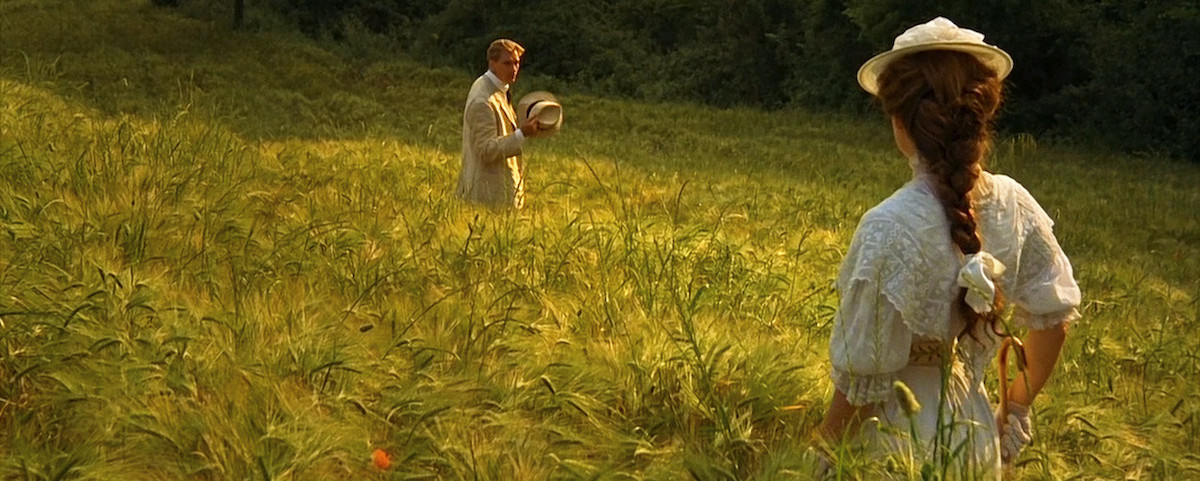
The Joys (and Perils) of Literary Tourism
Laura barnett on seeing another country through fiction.
It began with Gerald Durrell, a trip to Greece, and a slaughtered lamb.
I was seven years old; my mum—exhausted from a demanding full-time job and a no less demanding full-time daughter—was taking us to the tiny Greek island, an hour’s boat-ride from Rhodes, where she hoped we might spend a peaceful Easter holiday.
We did. We ate crumbling spanakopita from the bakery on the harbour; walked the long, dusty path to the beach; and spent hours absorbed in our favorite shared activity: reading. She’d suggested I bring along Durrell’s My Family and Other Animals , and I, an animal-obsessed child, was entranced: there was Greece, the country I was visiting, coming alive on the page, in all its bohemian glamour and faunal chaos.
Inspired by Durrell’s menagerie—as I recall, Achilles, his strawberry-eating tortoise, made a particular impression—I befriended the lamb I found tethered to a tree outside an islander’s home. I gave this lamb a name (sadly, that has been lost to the mists of time); I fed it carrots. Its owner, a grinning, toothless old woman in a loose black dress, would come out to join us, offering encouragement in her incomprehensible language. The lamb liked me—I could tell. I saw myself, like the young Durrell, as a fledgling naturalist, able to communicate wordlessly with animals; my future career as a veterinarian seemed assured.
And then, one day (Good Friday—those familiar with Greek island culture may anticipate what’s coming), I tripped happily along to feed my friend the lamb, and found its stripped carcass hanging from the tree. The old woman, still grinning, came out to offer me some soup—a special Easter delicacy, my mum and I gathered—in which the lamb’s eyeballs were floating like peeled lychees. I screamed. I ran. I became a vegetarian, and would remain one for the next ten years (I was, like so many, eventually undone by the irresistible scent of a barbequing hamburger).
Disturbing as this incident was, I remember it chiefly, now, for setting a precedent that continued through my childhood, and into my adult life: my fascination with what I might usefully call “literary tourism”—with seeking out, whenever I travel, fiction set in the place I am visiting.
I don’t mean travel guides, or travel writing—illuminating and useful as these can be—but novels: fictional renderings that offer us another person’s perspective on a place, even as we are, through travel, forming that perspective for ourselves. It’s not armchair travel, either—that wonderful experience of visiting places, real or imagined, in books, without leaving the comfort of our living-room—but real-time travel, accompanied by a remarkable literary companion whose knowledge of the places we are passing through is far superior to our own.
For though I never quite got over the shock of being confronted with that dead lamb (even now, 26 years later, I still picture its naked, dripping body, and shudder), I continued to love Durrell. His Corfu trilogy accompanied me through the annual Greek holidays my mum and I took over the next few years, and I have never lost that early desire to see the place I was visiting reflected, in new and unexpected ways, on the page.
Living in Rome for a year while studying Italian and Spanish at university, I devoured the Italian-set novels of Henry James and E.M. Forster. I read Hemingway in Spain; Hans Fallada in Berlin. On my honeymoon, which my husband and I spent driving from Cape Cod to Maine, I took a selection of my favorite New England novelists: John Irving; Richard Russo; Elizabeth Strout.
For a recent trip to the American Booksellers’ Association Winter Institute in Denver, Colorado, I packed several books by the late Colorado-based author, Kent Haruf. Preparing for my first visit to Australia to attend the Perth Writers’ Festival last February, I sought out Cloudstreet by Tim Winton—that irrepressible, sprawling novel tracing the intertwined fates of two working-class West Australian families.
I am far from alone in this, of course. Many fellow authors, readers and friends have admitted that they are also keen literary tourists. My mum (from whom I have acquired so many of my reading habits) is one, too, though a recent cruise from England to Holland, Iceland and the Faroe islands proved a challenge. Asking our excellent local bookseller, Jonathan, to recommend a contemporary Icelandic novel to take with her, he said, “How do you feel about murder?”
Her answer? “Not so great.” Scandi-noir, wonderful as it is, might not, after all, be quite what you feel like taking on holiday: that romantic evening in Reykjavik could acquire quite a different atmosphere when your mind is filled with dark-skied menace, and you’re half-expecting a crazed murderer to jump out from the next corner.
That leads me to what is both the main pleasure and pitfall of literary tourism: that the version of a place depicted in a novel will undoubtedly not entirely fit the view from your car window or hotel room. That, of course, is exactly why I, and many like me, choose to enhance our understanding of that place through fiction.
A novel allows us to see the world through another’s eyes; sometimes, that vision will be disturbing, and it is certainly unlikely to fit the smooth, sanitized version presented by a travel company or guidebook, or even the benign clichés we may be carrying in our own mind. It’s like TripAdvisor, without any of the weird obsessives who’ve taken 20 photographs of the hotel toilet.
That’s not to say that the literary tourist won’t encounter his or her fair share of the weird and wonderful. Before my first trip to Cuba, my stepsister lent me her copy of Pedro Juan Gutierrez’s The Dirty Havana Trilogy , which opens, as some readers may be aware, with a frank and graphic depiction of some rather sweaty and acrobatic sex. I wasn’t naïve enough to take this as indicative of the sexual customs of all Cubans, but the novel certainly opened my eyes to a certain febrile atmosphere, a certain sensual languor, of which I would probably otherwise not have been aware.
There are times, of course, when a fictional depiction of a place can be plain misleading: watch too many episodes of The Wire , and you’d be forgiven for being far too terrified ever to set foot in Baltimore, though Anne Tyler’s novels—of which I am a dedicated fan—offer a palate-cleansing corrective to that bleak vision of what I now know to be, in the main, rather a charming city.
And a series of contemporary Italian novels I read as part of my degree, by a group of young authors known, since the mid-90s, as the “ giovani cannibali ” (“young cannibals”), blew apart all the romantic images of Italy I’d formed under the tutelage of Forster and James. These novels, informed by consumerism, pulp fiction and splattercore films, take a cartoonish, hyperreal view of Italian life that would forever alter my assumptions about what was going on inside those elegant, shuttered palazzi. One chapter ended with a man murdering his wife, decapitating her, and filling her hollowed-out skull with the contents of a bottle of premium-brand shampoo. Now that’s something you don’t get in A Room With a View .
There is a distinction to be drawn between seeking out novels written by outsiders (usually English-speaking), and those penned by natives. I will admit that I am, like many Anglophones, mainly drawn to the former, and don’t read as much literature in translation as I ought, and would like, to. There is something particularly appealing, when traveling, about reading an outsider’s perspective—the writer and his or her protagonist stands, in that case, in our own shoes, as a tourist or traveler.
But it is only in the authentic literature of that place and language that we can really gain a sense of what it means to live there—so it’s encouraging, here in the UK, to see so many new English translations of key non-English language fiction being published. We English-speaking literary tourists will have a far wider selection, in future, of books to stow in our suitcases.
Then, however, there is the danger of disappointment—of realizing that the version of a place we have so treasured through the work of a particular novelist is not necessarily one held dear by that city or country’s residents. I was shocked to discover, on meeting my husband’s family in Maryland for the first time, that none of them had ever read any Anne Tyler, despite living just ten miles away from Baltimore (I have corrected this omission by foisting a different Tyler novel on them each time we visit).
And when I mentioned my love for Kent Haruf to people I met in Denver (not the publishers and booksellers, I should add, but the shop assistants and baristas I got talking to), I was as likely to receive a blank stare, and the question, “Who?,” as I was to see a nod of happy recognition. How , I wanted to shout at them, can you live here, in Colorado, and not be familiar with the writing of Haruf, in which your cities, your mountains, your flatlands, are so eloquently, so precisely and poignantly, described?
But I didn’t shout, of course—and not only because I am British, and politeness is imprinted on my DNA. I didn’t because that is my version of the state, my exercise in literary tourism: for those who actually live in Denver, there are as many versions of the place as there are snowdrifts on the Rockies.
I came across something recently that strikes me as a useful analogy for all this. Here in my home city, the Museum of London has designed an app that enables users to map historic photographs over their cameraphone’s view of the same street or landmark, creating a slippage between the present and the past. Literary tourism works in much the same way. Through fiction, we map another perspective on a place over the one we are forming, in real time, through our own eyes; and we are offered the unique opportunity to observe, as we travel, how much is the same, and how much is thrillingly, intriguingly different.
The Versions of Us is published by Houghton Mifflin Harcourt.
- Share on Facebook (Opens in new window)
- Click to share on Twitter (Opens in new window)
- Click to share on Google+ (Opens in new window)
- Click to share on LinkedIn (Opens in new window)
- Click to share on Reddit (Opens in new window)
- Click to share on Tumblr (Opens in new window)
- Click to share on Pinterest (Opens in new window)
- Click to share on Pocket (Opens in new window)

Laura Barnett
Previous article, next article, support lit hub..

Join our community of readers.
to the Lithub Daily
Popular posts.

Follow us on Twitter
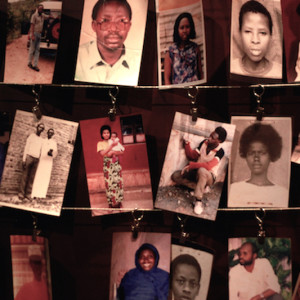
Half-Truth and Reconciliation: After the Rwandan Genocide
- RSS - Posts
Literary Hub
Created by Grove Atlantic and Electric Literature
Sign Up For Our Newsletters
How to Pitch Lit Hub
Advertisers: Contact Us
Privacy Policy
Support Lit Hub - Become A Member
Become a Lit Hub Supporting Member : Because Books Matter
For the past decade, Literary Hub has brought you the best of the book world for free—no paywall. But our future relies on you. In return for a donation, you’ll get an ad-free reading experience , exclusive editors’ picks, book giveaways, and our coveted Joan Didion Lit Hub tote bag . Most importantly, you’ll keep independent book coverage alive and thriving on the internet.

Become a member for as low as $5/month

Literary Tourism is an emerging niche sector within the wider cultural tourism sector.
Places with literary heritage throughout the NPA region offer captivating author and fiction-related literary tourism opportunities. The site of a writer’s birthplace, a place that sparked inspiration for a poem, a featured landscape in a well loved novel are all brought to life through literary festivals, walking trails or a quirky book shop.
Literary festivals in particular are growing in appeal and are well attended across the NPA region. Examples include the Cúirt International Literature Festival, Tread Softly Festival, Ireland; Wigtown Book Festival in Scotland and the Happy Days Beckett Festival, Northern Ireland.
Explore Attractions.
Filter Categories All Attractions Finland Ireland Northern Ireland Scotland

- Finland Eino Leino House Foundation - Kullervo Play Eino Leino house foundation plans to write, direct and pilot one of the cornerstones of Finnish literature, the story of Kullervo, as a play. The... READ MORE

- Finland Kainuun Opisto Oy - Cultural Trips in the Footsteps of the Kalevala Kainuun Opisto is a community college and course centre open to all. The institution is located in Paltamo, on the shores of Lake Oulujärvi. They... READ MORE

- Northern Ireland Literary Tourism Products Under Development in Northern Ireland & Cavan/Monaghan Lurgan & North Armagh George Russell Festival Society (GRFS) The Society runs an Annual Festival in Lurgan, County Armagh centred around the heritage of George Russell... READ MORE

Never Miss Out! Be the first to know what’s happening; get the latest on funding announcements, events and news from Spot-lit.
- Northern Ireland
- I have read and agree to the Spot-lit Privacy Policy
- I agree to getting email updates from Spot-lit
- Name This field is for validation purposes and should be left unchanged.

Associate Partners:

This site uses cookies. By continuing to browse the site, you are agreeing to our use of cookies.
Cookie and Privacy Settings
We may request cookies to be set on your device. We use cookies to let us know when you visit our websites, how you interact with us, to enrich your user experience, and to customise your relationship with our website.
Click on the different category headings to find out more. You can also change some of your preferences. Note that blocking some types of cookies may impact your experience on our websites and the services we are able to offer.
These cookies are strictly necessary to provide you with services available through our website and to use some of its features.
Because these cookies are strictly necessary to deliver the website, you cannot refuse them without impacting how our site functions. You can block or delete them by changing your browser settings and force blocking all cookies on this website.
These cookies collect information that is used either in aggregate form to help us understand how our website is being used or how effective our marketing campaigns are, or to help us customize our website and application for you in order to enhance your experience.
If you do not want that we track your visit to our site you can disable tracking in your browser here: Click to enable/disable Google Analytics tracking.
We also use different external services like Google Webfonts, Google Maps and external Video providers. Since these providers may collect personal data like your IP address we allow you to block them here. Please be aware that this might heavily reduce the functionality and appearance of our site. Changes will take effect once you reload the page.
Google Webfont Settings: Click to enable/disable Google Webfonts.
Google Map Settings: Click to enable/disable Google Maps.
Vimeo and Youtube video embeds: Click to enable/disable video embeds.
Spot-lit.eu secures your personal information from unauthorized access, use or disclosure. Spot-lit.eu secures the personally identifiable information you provide on computer servers in a controlled, secure environment, protected from unauthorized access, use or disclosure. When personal information (such as a credit card number) is transmitted to other websites, it is protected through the use of encryption, such as the Secure Socket Layer (SSL) protocol.
Spot-lit.eu will occasionally update this Statement of Privacy to reflect company and customer feedback. Spot-Lit.eu encourages you to periodically review this Statement to be informed of how Spot-Lit.eu is protecting your information.
You can read about our cookies and privacy settings in detail on our Privacy Policy Page.
Spot-lit.eu welcomes your comments regarding this Statement of Privacy. If you believe that Spot-lit.eu has not adhered to this Statement, please contact Spot-lit.eu at [email protected] . We will use commercially reasonable efforts to promptly determine and remedy the problem.
Academia.edu no longer supports Internet Explorer.
To browse Academia.edu and the wider internet faster and more securely, please take a few seconds to upgrade your browser .
Enter the email address you signed up with and we'll email you a reset link.
- We're Hiring!
- Help Center


Coimbra as a literary tourism destination: landscapes of literature

2020, International Journal of Culture, Tourism and Hospitality Research
Purpose The purpose of this paper is to demonstrate the relevance of developing literary tourism in Coimbra. Design/methodology/approach This exploratory qualitative research identifies existent resources and development potential of literary tourism. The instruments of data collection were bibliographic research, questionnaires, interviews and participant observation. Findings There are few literary tourism products in Coimbra, which contrasts with the number of literary places identified, namely, on the left bank of the River Mondego. Tourism development stakeholders in Coimbra have not paid enough attention to the emergence of literary tourism and the opportunities for the development of new sustainable cultural products related with it. Research limitations/implications This study is limited by the size and continual renewal of the corpus, which implies a constant updating of data regarding authors and texts. Practical implications This study will lead to the production of a dat...
Related Papers
The potential of literature in creating tourist experiences in Portugal (Atena Editora)
Atena Editora
Tourist destinations tend to bet more and more on niche products that attract visitors who want to live a unique, enriching and differentiating experience. Art, culture and literature are intrinsic elements of each destination, with the potential to be explored, either independently, or in conjunction with other endogenous products, such as gastronomy or wine. In any case, learning and immersion in the local culture are at the base of the motivations of the visitors who seek them out. In Portugal, several regions bet on the uniqueness of their endogenous products, allied to literature, organizing itineraries, events or festivals. The house-museums of a particular author, the literary hotels, the cafes that evoke memories of literary gatherings are stages for these initiatives. This article explores the relationship between tourism and literature, based on the assumption that both the work and the life of a writer can serve as a basis for the creation of itineraries and literary places capable of enhancing tourism in the places where they will be developed, promoting an intercultural experience and the perpetuation of the memory of works and authors. Combining literature with endogenous products, such as gastronomy or wines, is another potential explored in Portugal, in the sense of providing a differentiating, sustainable experience that stimulates the senses of its visitors, which will be addressed in this article.
Proceeding of The International Conference on Literature
Made Suyasa
Chiara Martino
Literary tourism is a type of cultural tourism that deals with places related to the lives and the works of writers. Starting from a corpus analysis, this dissertation shall illustrate the manipulative techniques of the language employed in literary tourism websites. In the first part of this paper, some brief theoretical information will be given, since literary tourism has a quite long history and has already been studied by a large number of scholars. In the second part, a small corpus of texts collected from websites about this topic shall be examined. Firstly, the method used for this research will be described and secondly, the results will be presented. The third and last part of this work, then, concerns the analysis of two pictures and of a particular extract taken from one of the texts used for the corpus. Finally, the conclusion will explain the choice of the title given to this paper and will summarize the most common techniques used by tourism stakeholders in order to lure possible tourists into buying what they offer .
ENLIGHTENING TOURISM A PATHMAKING JOURNAL
Jordi Arcos-Pumarola , Eugenio Sacar
This article reviews the literature on literary tourism between 1983-2019. It has a double objective: on the one hand, it aims at gathering a comprehensive perspective into the quantity and evolution of studies on literary tourism and, on the other hand, identifying lines of research and the main objects of study within the research on literary tourism. The latter will allow us to identify what trends have been followed when analyzing literary tourism, both methodologically and conceptually. To answer these objectives, the article structures its literature review in two phases: a descriptive analysis and a thematic analysis. From this starting point, the article will present a number of challenges for future research on literary tourism, both at a methodological and content-related level, emphasizing the use of quantitative methodologies to approach this touristic type, analyzing the role of literary tourism in touristic destinations as well as focusing on the pedagogical needs of tourists in order to facilitate their access to literary tourism.
Alexandra Zbuchea
Literary tourism is a peculiar form of old tourism that seems to benefit from renewed interest. Besides the relevance for tourists choosing this form of travel, literary tourism can generate positive benefits for many economic and social actors. It can significantly contribute to the branding of places, such as in the case of the famous Dracula. Considering this, the present study aims to map the existing knowledge on literary tourism following a literature review. Several items are considered: the evolution of the academic interest in literary tourism, the main lines of investigation, the geographical distribution of the mainstream literature, the types of outlets used to disseminate the research, the authorship and co-authorship, as well as the impact of the research. The study shows that academic studies in literary tourism are a nascent field of investigation, with the number of studies increasing mainly in the past few years and the narrow geographic distribution. Also, most publications are articles based on case studies and narrative literature reviews. Older studies focus on more abstract themes such as the history of tourism and perceptions related to heritage, while the more recent studies are more interested in tourism forms and destinations. We find a wide heterogeneous and rather shallow investigative approach. The investigation also highlights that literary tourism could be a successful path to destination development.
cornelia petroman
Literary tourism, niche tourism and form of cultural tourism, contributes to the sustainable development of some destinations in areas that have literary resources, places where they were born, temporarily lived or where are sites or places of pilgrimage of some personalities of national or universal literature. Literary tourism of conferences, of paying homage’s to writers on different occasions or simply pilgrimage to funerary monuments or sites where they happened events described in literary works, memorial houses and museums in the analyzed area, contributing in addition to sustainable development of communities to the development of literature by understanding the events, places under commercial terms, contributing to the formation of some tourist brands by selling souvenirs, movies, books. Besides promoting some sites, besides the cultural act strictly literary this form of niche tourism, intelligent tourism contribute to the sustainable development of the regions through li...
Charles Mansfield
Working Definitions in Literature and Tourism
Harald Hendrix
Working definition of "Tourist Literature", in: Silvia Quinteiro, Maria Jose Marques, eds., Working Definitions in Literature and Tourism, Lisbon, CIAC, 2022, pp. 137-138
Key Concepts in Literature and Tourism Studies
Sílvia Quinteiro , Rita Baleiro
Literature and tourism studies are an emerging research area. Therefore, there is much to be done, as it is important to develop a theoretical body and define a methodology. ln this context, we have decided to write this book with the aim of contributing to the definition of literature and tourism studies as an autonomous scientific area. So, first, we set the conceptual framework for both literature and tourism, and then we proceed to describe the corpus and the key concepts of this research cluster. We hope this book will become an easy-to-use tool for use both in the classroom, as well as in an autonomous study context. ln both cases, we would like our text to be a source of information and a starting point for a discussion on each of the topics covered. We also hope to encourage our readers to further expand interdisciplinary research in literature and tourism.
Journal of Tourism, Heritage & Services Marketing
RELATED PAPERS
Rla Revista De Linguistica Teorica Y Aplicada
Veeliz Monica
Adrina Esther Liaw
Old Testament essays
Maria Frahm-Arp
Ciencia & saude coletiva
Kátia Curci
Alberto Castillo
LUCERO NOELIA MARTINEZ GARCIA
Sara Del Vechio
Jurnal Ilmiah Merpati (Menara Penelitian Akademika Teknologi Informasi)
Ayu Wirdiani
Language Related Research
Mahmood Reza Atai
IET Renewable Power Generation
Aaron Barker
Vicente Carabias-Hütter
Peacemakers' Press
Robert L Roberg
RLA. Revista de lingüística teórica y aplicada
Cristian Augusto Gonzalez Arias
Energy Procedia
Sébastien Leveneur
Documento de Trabajo, CEPAL, Buenos …
Pablo Moldovan
Journal of Political Science Education
Shannon Orr
Biochemical Journal
Irene Mavelli
Saeid Latifi-Navid
frère Jean-Thomas de Beauregard o.p
imke dunkake
Journal of Experimental Botany
Josefa M. Alamillo
Behavioral Sciences
Manal A Othman
Ciência & Saúde Coletiva
Juarez Pereira Furtado
Pesquisa Veterinária Brasileira
Julieta Rodini Engracia de Moraes
See More Documents Like This
RELATED TOPICS
- We're Hiring!
- Help Center
- Find new research papers in:
- Health Sciences
- Earth Sciences
- Cognitive Science
- Mathematics
- Computer Science
- Academia ©2024

KZN Literary Tourism Latest News

APTICULATE AFRICA
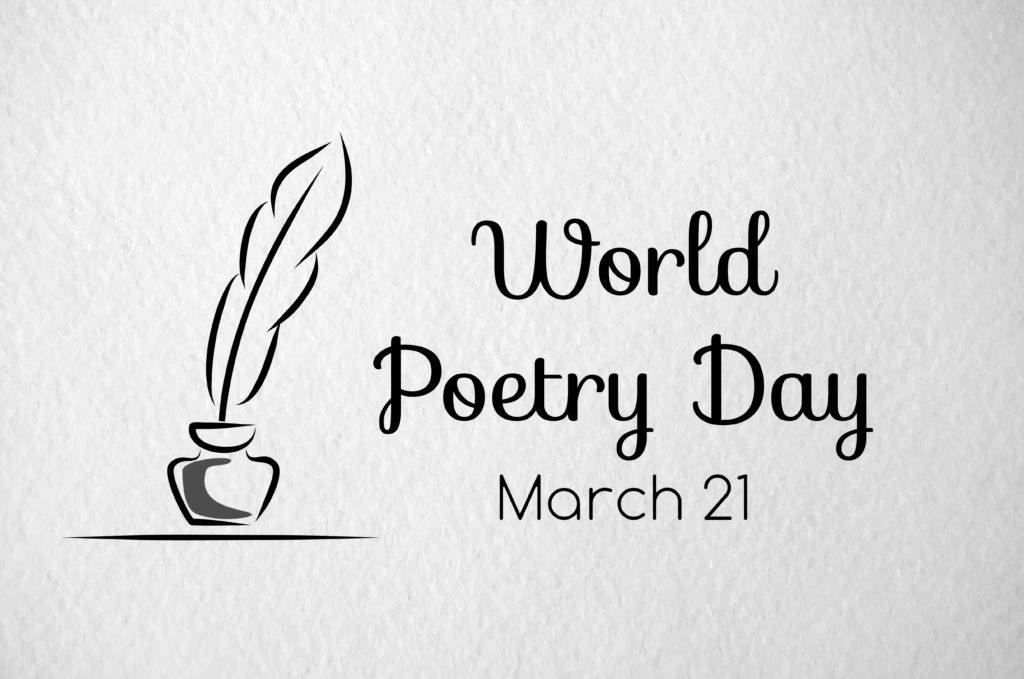
World Poetry Day 2024!

Tartu City of Literature international residency programme
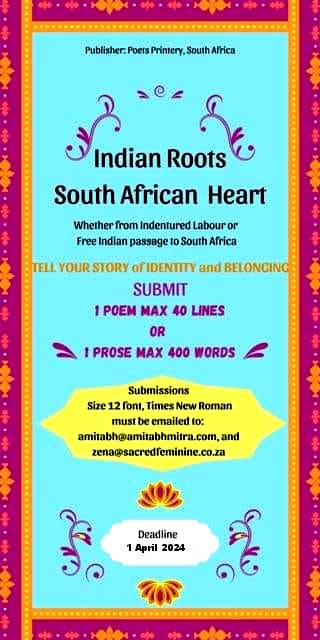
Indian Roots South African Heart
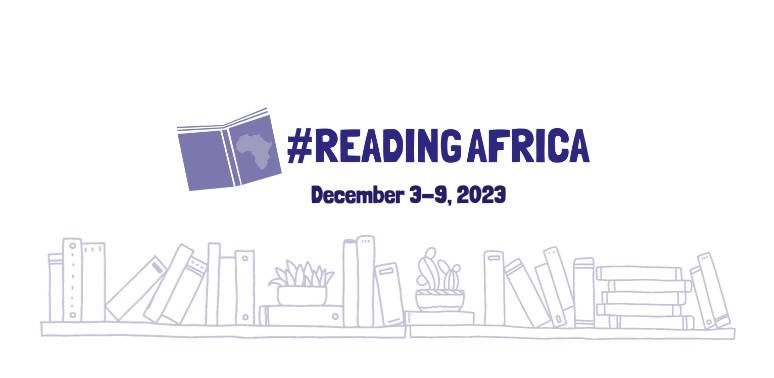
READING AFRICA 3-9 DECEMBER 2023
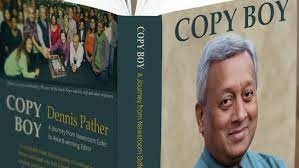
REVIEW OF COPY BOY BY DENNIS PATHER
Zur deutschen seite geht es hier:.

Robert Berold
Ronald “Ronnie” Kasrils
Bhekisigcino damasius khawula, dianne stewart, alex coutts, harold strachan.

What is Literary Tourism?
Literary Tourism is tourism that deals with places and events from fictional texts as well as the lives of their authors. This could include following the route a fictional character charts in a novel, visiting particular settings from a story or tracking down the haunts of a novelist.
Hello and welcome to the KZN Literary Tourism website. Through this site, we aim to provide an invaluable resource for those interested in the relatively new field of Literary Tourism as well as provide information on the work we are currently doing from our base in Durban, South Africa.
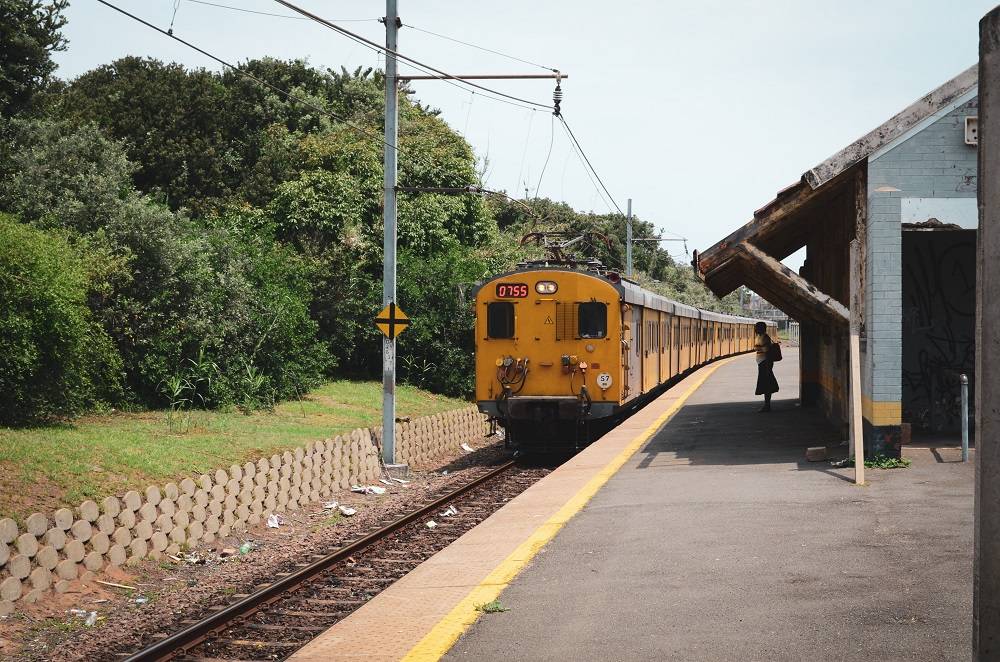
KZN Literary Tourism
Useful link, get in touch.
Penguin Publishers
[email protected] Telephone: +27 11 327 3550 http://penguinbooks.co.za/
Lindy Stiebel
Telephone: +27 31 260 2308 Email: [email protected] Email: [email protected]
Sign up here to get the latest news, updates and special offers delivered to your inbox.

Literary Tourism: The New Challenges Facing the Certified Tourist Guide
- First Online: 05 October 2023
Cite this chapter
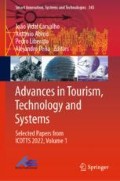
- Ana Ferreira ORCID: orcid.org/0000-0003-1162-0996 7 , 8 &
- Marta Villares ORCID: orcid.org/0000-0002-0394-3050 7
Part of the book series: Smart Innovation, Systems and Technologies ((SIST,volume 345))
146 Accesses
Tourist Guides are one of the key players in the Travel Industry. Through their cultural knowledge and communication and relational skills, they can elevate tourists’ visits to a level of experience and knowledge. Literary tourism is a growing trend in tourism activity that demands new skills from the Tourist Guides. They are asked to be cultural facilitators/mediators and interpreters of the work and of the tourist site, contributing to the tourist experience, giving importance to the writer, his legacy, and the host community. In this way we consider that it is also in this type of tourism that the challenges faced by the tourist guide are felt. Based on these assumptions, this study aims to present the perception of the tourist guide on the impacts of literary tourism in their activity, namely identifying the needs for training and adaptation of the tourist guide to meet the needs of this product and contribute to the enhancement and promotion of literary heritage. The analysis of the results obtained from a questionnaire carried out to a significant sample of Tourist Guides allows us to state, as tourism players, that the Tourist Guides recognize the importance of the dissemination and promotion of literary tourism and are interested in expanding their knowledge and adapting their practises to meet the needs of this type of tourism.
- Literary tourism
- Tourist guide
- Literary tour
- Tourist destination
This is a preview of subscription content, log in via an institution to check access.
Access this chapter
- Available as PDF
- Read on any device
- Instant download
- Own it forever
- Available as EPUB and PDF
- Durable hardcover edition
- Dispatched in 3 to 5 business days
- Free shipping worldwide - see info
Tax calculation will be finalised at checkout
Purchases are for personal use only
Institutional subscriptions
Ababneh, A.: Tour guides and heritage interpretation: guides’ interpretation of the past at the archaeological site of Jarash, Jordan. J. Herit. Tour. 1–16 (2017). https://doi.org/10.1080/1743873X.2017.1321003
Barbara, V.: The role of tourist guides in the multi-vocal presentation of heritage. Int. J. Tour Guid. Res. 1 (1) (2020). Retrieved https://arrow.tudublin.ie/ijtgr/vol1/iss1/6
Brito, L.M.: Informação Turística—A Arte do Guia-Intérprete: entre a Cultura do Turista e do Destino, 1ª Edição. Chiado Editora (2013)
Google Scholar
Brito, L.M.: The consequences of guiding profession deregulation for the status and training of tourist guides: a Portuguese overview. Int. J. Tour Guid. Res. 1 (1) (2020). Retrieved https://arrow.tudublin.ie/ijtgr/vol1/iss1/7
INE: Estatísticas do Turismo 2021. Lisboa (2022)
Irimiás, A., Mitev, A., Michalkó, G.: The multidimensional realities of mediatized places: the transformative role of tour guides. J. Tour. Cult. Change (2020). Retrieved https://doi.org/10.1080/14766825.2020.1748884
Jafari, J. (ed.): Encyclopedia of Tourism, 1st edn. Routledge, London (2000)
Manhas, S.P., Lalita, A.M., Ajay, K.M.: Role of tourist destination development in building its brand image: a conceptual model. J. Econ. Finance Adm. Sci. 21 (40), 25–29 (2016). Retrieved https://doi.org/10.1016/j.jefas.2016.01.001
Monteiro, S.: Criação do distrito literário de Lisboa, ISCTE, IUL. Dissertação de Mestrado, Lisboa (2016)
Pereiro Pérez, X.: Turismo Cultural. Uma visão antropológica. El Sauzal (Tenerife. Espanha): ACA y PASOS, RTPC (2009)
Sardo, A.N.: Turismo Literário: Uma forma de valorização do património e da Cultura Locais. Egitania Sci. 2 , 75–96 (2008)
Smith, Y.: Literary tourism as a developing genre: South Africa’s potential. Doctoral Dissertation, University of Pretoria (2012)
Turismo de Portugal: Programa de Ação para o Turismo Literário (2021). Retrieved https://www.turismodeportugal.pt
Watson, N. (ed.): Literary Tourism and Nineteenth-Century Culture. Springer (2009)
Download references
Author information
Authors and affiliations.
School of Hospitality and Tourism of Polytechnic Institute of Porto (ESHT), Rua D. Sancho I, 981, 4480-876, Vila do Conde, Portugal
Ana Ferreira & Marta Villares
CiTUR (Center for Tourism Research, Development, and Innovation), Porto, Portugal
Ana Ferreira
You can also search for this author in PubMed Google Scholar
Corresponding author
Correspondence to Marta Villares .
Editor information
Editors and affiliations.
Porto Accounting and Business School, Polytechnic Institute of Porto, São Mamede de Infesta, Portugal
João Vidal Carvalho
Inst. of Acct. & Admin.of Porto (ISCAP), Polytechnic Institute of Porto, S. Mamede de Infesta, Portugal
António Abreu
School of Hospitality and Tourism, Polytechnic Institute of Porto, Vila do Conde, Portugal
Pedro Liberato
Department of Accounting, School of Management, EAFIT University, Medellín, Colombia
Alejandro Peña
Rights and permissions
Reprints and permissions
Copyright information
© 2023 The Author(s), under exclusive license to Springer Nature Singapore Pte Ltd.
About this chapter
Ferreira, A., Villares, M. (2023). Literary Tourism: The New Challenges Facing the Certified Tourist Guide. In: Carvalho, J.V., Abreu, A., Liberato, P., Peña, A. (eds) Advances in Tourism, Technology and Systems. Smart Innovation, Systems and Technologies, vol 345. Springer, Singapore. https://doi.org/10.1007/978-981-99-0337-5_14
Download citation
DOI : https://doi.org/10.1007/978-981-99-0337-5_14
Published : 05 October 2023
Publisher Name : Springer, Singapore
Print ISBN : 978-981-99-0336-8
Online ISBN : 978-981-99-0337-5
eBook Packages : Intelligent Technologies and Robotics Intelligent Technologies and Robotics (R0)
Share this chapter
Anyone you share the following link with will be able to read this content:
Sorry, a shareable link is not currently available for this article.
Provided by the Springer Nature SharedIt content-sharing initiative
- Publish with us
Policies and ethics
- Find a journal
- Track your research

IMAGES
VIDEO
COMMENTS
Literary tourism. Literary tourism is a type of cultural tourism that deals with places and events from literary texts as well as the lives of their authors. This could include visiting particular place associated with a novel or a novelist, such as a writer's home, or grave site, following routes taken by a fictional characters, visiting ...
Literary tourism is a nascent field in tourism studies, yet tourists often travel in the footsteps of well-known authors and stories. Providing a wide-ranging cornucopia of literary tourism topics, this book fully explores the interconnections between the written word and travel. It includes tourism stories using guidebooks, films, television and electronic media, and recognises that stories ...
Literary tourism is a type of cultural tourism that deals with places and events from fictional texts as well as the lives of their authors. This could include following the route taken by a fictional character, visiting a particular place associated with a novel or a novelist, such as their home, or visiting a poet's grave. ...
Literary tourism, a niche within the broader spectrum of travel, offers a unique and enriching experience for book lovers and literary enthusiasts. It involves visiting places associated with literature, whether they are the settings of beloved novels, the homes of renowned authors, or the locations that inspired literary masterpieces.
Literary tourism. Literary tourism refers to the production and consumption of places, landscapes, museums, historic houses, and graves associated with published creative writings and/or their authors. This form of tourism has a long history in literary societies but expanded in the nineteenth century with the rise of democratized travel ...
Furthermore, the Centre for Tourism and Cultural Change׳s 2004 international research conference was themed "Tourism & Literature: Travel, Imagination & Myth ... In view of the above, the aim of this paper is to define literary tourism, to outline the various forms it takes and to suggest ways in which destinations can and should capitalise ...
Literature may be of great importance as it can make a place immortal, strengthening the growth of literary pilgrims, and satisfy the demands of cultural tourism. Literary tourism has several dimensions, being motivated by the interest concerning an author, in a literary creation or setting, or in the cultural heritage of a destination.
Literary tourism is the practice of visiting cities and sites related to works of fiction and their authors. Combining literature with travel and cultural experiences, literary tourism is by no means a recent occurrence and has been practiced for several centuries. The use of electronic devices for participating in the literary tourism ...
Literary tourism works in much the same way. Through fiction, we map another perspective on a place over the one we are forming, in real time, through our own eyes; and we are offered the unique opportunity to observe, as we travel, how much is the same, and how much is thrillingly, intriguingly different. The Versions of Us is published by ...
Literary tourism: theories, practice and case studies edited by I. Jenkins and K. Lund, Wallingford, CABI, 2019, 210 pp., £85.00/€100.00/$120.00 (hardback), ISBN: 978-1-786-39459-. Jonathan Skinner Reader in Anthropology, University of Roehampton Correspondence [email protected]
Literary tourism is a nascent field in tourism studies, yet tourists often travel in the footsteps of well-known authors and stories. Providing a wide-ranging cornucopia of literary tourism topics, this book fully explores the interconnections between the written word and travel. It includes tourism stories using guidebooks, films, television ...
"Place" plays an important role for literary tourism, in particular for fiction-related literary tourism. Writers can define and redefine spaces through their works (Andersen & Robinson, 2002) and literature has the ability to reflect real space and its use (Andersen and Robinson 2002). They go on to point out that the relationship between ...
Abstract. Literary tourism is a concept that praises the culture and heritage of a destination. The concept is. to go to locations around the world that have been hi ghlighted in some non ...
Literary tourism is shaped by the language of the works produced and published. Some associated sites are important within a national context but largely inaccessible for tourists outside of the language. However, the pervasiveness and hegemony of the English language has privileged the literatures of the Anglophone world generating a ...
To ground literary tourism in theories of ideal presence is to locate its origins in the eighteenth century. Most historians of literary tourism, understandably, focus on the Victorian period, when such tourism had arrived as a mature industry and a cultural commonplace. 1 Nonetheless, literary tourism is a distinctly Romantic formation.
Places with literary heritage throughout the NPA region offer captivating author and fiction-related literary tourism opportunities. The site of a writer's birthplace, a place that sparked inspiration for a poem, a featured landscape in a well loved novel are all brought to life through literary festivals, walking trails or a quirky book shop.
According to Hoppen et al. (2014), viewing the work of artists in their home is regarded as heritage tourism, while appreciating their art as part of an exhibition away from their residences is categorized as cultural tourism. As per these definitions, literary tourism in the current study is mainly cast as heritage tourism since visitors ...
Please don't hate me for quoting Wikipedia, but their definition of Literary Tourism is a great starting place. "Literary tourism is a type of cultural tourism that deals with places and events from literary texts as well as the lives of their authors. This could include visiting particular places associated with a novel or a novelist, such ...
To ground literary tourism in theories of ideal presence is to locate its origins in the eighteenth century. Most historians of literary tourism, understandably, focus on the Victorian period, when such tourism had arrived as a mature industry and a cultural commonplace. 1 Nonetheless, literary tourism is a distinctly Romantic formation. To be sure, Romantic literary tourism drew on earlier ...
Literature and tourism studies are an emerging research area. Therefore, there is much to be done, as it is important to develop a theoretical body and define a methodology. ln this context, we have decided to write this book with the aim of contributing to the definition of literature and tourism studies as an autonomous scientific area.
What is Literary Tourism? Literary Tourism is tourism that deals with places and events from fictional texts as well as the lives of their authors. This could include following the route a fictional character charts in a novel, visiting particular settings from a story or tracking down the haunts of a novelist. Read More.
Literary tourism has a centuries long history, but as a field of academic research, its history spans just over several decades . Literary tourism, generally based on national literature and its connection with certain places, is a distinctive type of tourism that gives a visitor an insight into the historical and cultural past of a country .
Literary tourism is a growing trend in tourism activity that demands new skills from the Tourist Guides. They are asked to be cultural facilitators/mediators and interpreters of the work and of the tourist site, contributing to the tourist experience, giving importance to the writer, his legacy, and the host community.